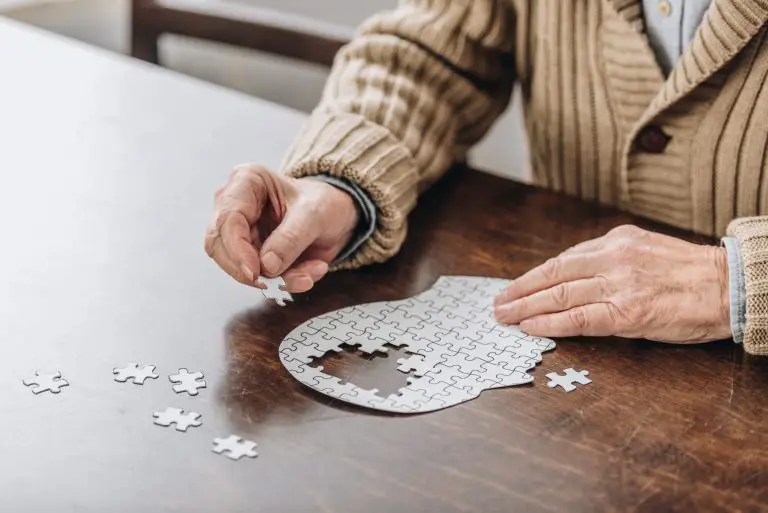When No One Understands You: 10 Coping Strategies and Ways to Feel Heard
When No One Understands You: 10 Coping Strategies and Ways to Feel Heard

Feeling like nobody can understand us is one of the loneliest experiences we can face. We might share our thoughts with friends or family, only to see blank stares or hear responses that completely miss the point. This disconnect may lead us to wonder if something is wrong with us or if we simply communicate differently than others.
The truth is, feeling misunderstood often stems from a combination of communication gaps, not yet finding our tribe, and sometimes deeper issues like attachment that complicate connection.
Our brains are wired to seek understanding and belonging, so when we don’t get it, the emotional pain feels very real. We might start pulling away from others or stop sharing what matters most to us.
Feeling misunderstood doesn’t mean we’re broken or weird; it simply means we’re human.
Sometimes we need better ways to communicate our thoughts, or we haven’t found the right people who share our values and interests. Understanding why this happens and what we can do about it can help us build the meaningful connections we’re seeking.
Why You Might Feel Misunderstood
Feeling like no one gets us can stem from several common causes. Let’s examine the primary reasons this may occur.
Communication Issues
Sometimes we struggle to express our thoughts clearly. When our words don’t align with what we mean, others may struggle to understand us.
We may also have different communication styles from those around us, which creates gaps in understanding.
Past Experiences Shape Us
Our childhood experiences often affect how we connect with others as adults. Growing up with emotionally distant parents can create lasting patterns of feeling misunderstood.
These early experiences might make us feel fundamentally different from others.
Mental Health Factors
Depression and anxiety can make us feel more isolated. Depression significantly impacts why we might feel like no one gets us by changing how we communicate.
When we’re struggling mentally, it becomes more challenging to articulate our needs clearly.
Different Perspectives
We all see the world differently based on our unique experiences.
Sometimes we haven’t found people who share similar viewpoints or interests.
Common Signs Include:
- Feeling alone in groups
- Thinking our problems are too complex
- Believing others judge us unfairly
- Struggling to make deep connections
These feelings are normal and more common than we might think.
Is It Just Miscommunication or Something Deeper?
Sometimes we think people don’t understand us, but it is how we communicate with each other that may set us apart. Different communication styles can create significant problems between people.
Common Communication Issues:
- We speak directly, while others hint at things
- We give lots of details, but they want the main point
- We use different words for the same ideas
- We expect people to read between the lines
But sometimes it goes deeper than just communicating differently. Feeling misunderstood can be a sign of depression or other mental health issues.
Deeper Issues That Cause Misunderstanding:
- Depression – Makes us feel isolated and disconnected
- Anxiety – We worry people will judge us
- Past hurt – We expect others to let us down
- Low self-worth – We think our thoughts don’t matter
Neurodivergent people often face long-term impacts from being misunderstood. Their brains work differently, but others often fail to see or accept this.
We might also be around the wrong people. If we haven’t found others who share our interests or values, we’ll feel out of place.
The key is determining whether we need to adjust our communication approach or seek alternative support. Both problems are real, and both can be fixed.
Why Feeling Misunderstood Hurts So Much (The Psychology Behind It)
We all have a basic human need to be known and understood. When this doesn’t happen, being misunderstood becomes painful because it touches our deepest emotional needs.
Connection and Belonging
Our brains are wired for connection. When people don’t understand us, we feel disconnected and alone. This triggers the same pain centers in our brain as physical injury.
Identity and Self-Worth
Being misunderstood can make us question ourselves. We might wonder if something is wrong with us or if our feelings are valid.
Feeling misunderstood creates a complex web of emotions:
- Loneliness – Even when surrounded by people
- Frustration – From failed attempts to explain ourselves
- Sadness – When others don’t see our true selves
- Shame – Wondering if we’re too different or difficult
The Trauma Response
Sometimes our need to be understood comes from past experiences. The desire to be deeply understood can be a trauma response from times when we felt invisible or unheard.
Why It Feels So Intense
The pain hits harder because understanding means acceptance. When someone truly gets us, we feel safe and valued. Without it, we feel rejected and isolated.
How This Feeling Impacts Your Mental Health
When we feel like nobody understands us, it creates a heavy burden on our minds. This feeling doesn’t just hurt in the moment; it can change how we perceive ourselves and the world around us.
Isolation becomes our default mode. We start pulling away from friends and family. Social situations feel pointless because we think people won’t get us anyway.
The constant feeling of being misunderstood can fuel depression and anxiety. Our brains start to believe that we’re truly alone, even when we’re surrounded by people who genuinely care about us.
Common mental health impacts include:
- Increased feelings of loneliness
- Lower self-esteem
- Higher stress levels
- Sleep problems
- Loss of motivation
We might start questioning our worth. If nobody understands us, maybe there’s something wrong with us. This toxic thinking pattern exacerbates everything.
Depression and feeling misunderstood often go hand in hand. The two feed off each other, creating a cycle that’s hard to break.
Our relationships suffer too. We stop sharing our honest thoughts and feelings. We put up walls to protect ourselves, but this only makes us feel more disconnected.
Physical symptoms can also appear. Headaches, stomach problems, and fatigue are common when we carry this emotional weight. Our bodies respond to the stress of feeling unseen and unheard.
The good news is that recognizing these impacts is the first step toward healing.
10 Coping Strategies When No One Understands You
When we feel misunderstood, we need practical ways to cope with the situation. These strategies help us manage emotions when it seems like nobody gets us.
1. Start journaling to express our thoughts freely. Writing helps us process feelings without judgment.
2. Practice mindfulness to stay grounded in the present moment. This reduces anxiety around feeling misunderstood.
3. Find online communities where people share similar experiences. We can connect with others who genuinely understand our struggles.
4. Talk to a counselor who specializes in communication issues. Professional support helps us work through these feelings.
5. Improve our communication skills by being clearer about our needs. Sometimes we need to work on how we express ourselves.
6. Show both warmth and competence in our interactions. This helps others see us more clearly.
7. Practice self-compassion instead of harsh self-criticism. We deserve kindness from ourselves first.
8. Engage in creative activities like art, music, or writing. These outlets help us express what words cannot.
9. Volunteer for causes we care about. This naturally connects us with like-minded people.
10. Take breaks from trying to be understood. Sometimes we need space to recharge our emotional energy before reaching out again.
When to Seek Help: Signs It’s Time for External Support
Sometimes we all feel misunderstood, but there are sure signs that tell us when it’s time to reach out for help. We don’t have to struggle alone when professional support can make a real difference.
Emotional Warning Signs
We should consider getting help when we experience:
- Feeling sad or hopeless for weeks
- Consistent anxiety, worry, or feeling overwhelmed
- Wide mood swings that affect our daily lives
- Feeling emotionally drained most days
Daily Life Struggles
When everyday tasks start feeling impossible, it’s a clear sign we need extra support. This includes trouble with work, relationships, or basic self-care.
We may notice that we can’t focus on work or school as we used to. Simple decisions become hard to make.
When Our Usual Methods Stop Working
If our normal ways of handling stress are no longer effective, professional guidance can offer new strategies. We all have coping methods, but sometimes they’re not enough.
Physical Signs
Our bodies often show stress through:
- Sleep problems
- Changes in appetite
- Constant fatigue
- Unexplained aches
The Right Time
We don’t need to wait for extreme difficulties to seek help. Professional support helps anyone wanting to understand themselves better and build stronger coping skills.
You’re Not Broken You’re Just Unseen Right Now
When we feel like no one gets us, our minds often jump to the worst conclusion. We think something is wrong with us. We believe we have been damaged or defective in some way.
But here’s what we need to remember: we’re not broken. We’re just experiencing a temporary state of being unseen.
Think of it like this – a flower blooming in a forest doesn’t become less beautiful just because no hikers walk by that day. The flower is still perfect. It’s still valuable. It just hasn’t been witnessed yet.
You’re not broken—you’re healing from past experiences. Sometimes what feels like being misunderstood is just us processing life differently than those around us.
Our authentic selves exist whether others see them or not. When we can’t find people who understand us right now, it doesn’t mean we need fixing; it just means we’re not yet in a place where we can find them.
Here’s what “unseen” really means:
- Temporary invisibility – not permanent damage
- Wrong audience – not wrong person
- Timing mismatch – not character flaw
- Different wavelength – not broken frequency
Feeling like no one understands us can be painful, but we’re not alone in this struggle. Millions of people experience this feeling at various points in their lives.
Resources to Feel Seen and Heard
When we feel misunderstood, several resources can help us connect with others and find our voice.
Professional Support
Therapy can help us tell our story when we’re struggling with feeling invisible and unheard. A therapist provides a safe space to explore why we feel disconnected.
Counselors teach us better communication skills. They also help us understand our emotions and needs more clearly.
Online Communities
Support groups and forums connect us with people who share similar experiences and perspectives. We can find others who truly understand what we’re going through.
Social media groups focused on specific topics or challenges create opportunities for meaningful connections. Look for moderated spaces that encourage healthy discussions.
Communication Tools
We can practice expressing ourselves through:
- Journaling to clarify our thoughts before sharing
- Active listening workshops to improve our conversation skills
- Assertiveness training to communicate needs without being aggressive
Books and Educational Resources
Self-help books about communication and relationships offer practical strategies. Many include exercises we can practice with trusted friends or family members.
Online courses teach us how to be seen and heard when we’re feeling invisible. These resources help us build confidence in expressing ourselves.
Local Support Groups
Community centers often host support groups for various life challenges. These face-to-face meetings foster genuine connections with people in our community.
Final Thoughts
Feeling misunderstood is one of the most challenging human experiences we face. It can make us feel alone even when people surround us.
Remember these key points:
- Your feelings are valid
- You’re not broken
- Connection takes time and effort
- Small steps matter
We don’t have to wait for others to reach out first. Sometimes we need to be brave and try again with different people.
Finding our people often means:
- Being patient with ourselves
- Trying new ways to share our thoughts
- Looking in different places for connection
- Accepting that not everyone will get us
The feeling that no one understands what we’re going through doesn’t last forever, even when it feels heavy right now.
We can move at our own pace. There’s no rush to figure everything out today.
If you’re struggling with dark thoughts, please reach out to the 988 Suicide Prevention Lifeline or text “HELLO” to 741741 for the Crisis Text Line.
You matter. Your story matters. And somewhere out there, someone is waiting to understand you.
Frequently Asked Questions
People often ask similar questions when they feel misunderstood. These common concerns include finding ways to cope, expressing feelings clearly, and connecting with supportive people.
How can I cope when I feel like nobody gets me?
We can start by recognizing that feeling misunderstood might be connected to depression or other mood changes. This awareness enables us to understand our emotions more effectively.
Writing in a journal provides a safe space for us to express our thoughts.
We can also try art, music, or other creative outlets to process our feelings.
Finding people who share our interests or experiences makes a big difference. Online communities and local groups often connect us with others who share our experiences and understand what we’re going through.
We should practice self-compassion during difficult times. Being patient with ourselves while we work through these feelings is vital for healing.
What strategies can I use to express my feelings when I feel misunderstood?
We need to work on improving our communication so our intentions are more apparent to others. This means using simple, direct language instead of expecting people to guess our meaning.
Choosing the right time and place for essential conversations helps. We get better results when people aren’t distracted or stressed.
Using “I” statements helps us share our feelings without making others defensive. For example, “I feel hurt when” works better than “You always make me feel.”
We can ask for feedback to make sure our message came across clearly. Simple questions, such as “Does that make sense?” help confirm understanding.
Why does it seem like people struggle to understand my perspective?
The human brain tends to minimize effort, which means that other people often don’t make much of an effort to understand us. This isn’t personal – it’s how most brains work.
People filter information through their own experiences and perspectives. They may not relate to situations they haven’t personally faced.
Some of us have invisible struggles like chronic pain or mental health challenges. Others may not be able to see these problems, making them harder to understand.
Communication styles differ between people. What seems clear to us might be confusing to someone who thinks differently.
Who can I turn to for support when it feels like no one comprehends my pain?
We can talk to a professional for guidance when friends and family don’t understand our struggles. Therapists and counselors are trained to listen and help.
Support groups connect us with people facing similar challenges. Both online and in-person groups offer understanding and practical advice.
Trusted friends who have shown empathy in the past make good confidants.
We don’t need everyone to understand – just a few caring people.
Helplines and crisis centers provide immediate support when we feel overwhelmed. These services are available 24/7 for urgent situations.
How do I deal with the isolation that comes from feeling not understood?
We can set boundaries about who we invite in and what we want to share. It doesn’t have to be all at once or everything.
Staying connected to our values and interests helps combat loneliness. We can pursue hobbies and activities that bring us joy, even when alone.
Building a routine that includes social interaction prevents complete isolation. This might mean regular phone calls, exercise classes, or volunteer work.
We should remember that isolation often feels worse than it is. Even small connections with others can break the feeling of being completely alone.
What are some ways to connect with others when I’m feeling alone in my experiences?
We can seek out supportive friends or groups who share our interests. Common hobbies or experiences create natural bonds with others.
Volunteering for causes we care about connects us with like-minded people. Working together toward shared goals builds understanding and friendship.
Online communities offer connection when local options are limited. Social media groups, forums, and apps can link us with people worldwide.
We should remain patient and continue to communicate our thoughts.
Understanding often requires time and effort from both parties in any relationship.
Starting small conversations with neighbors, coworkers, or classmates can grow into deeper connections. We don’t need to share everything right away.







